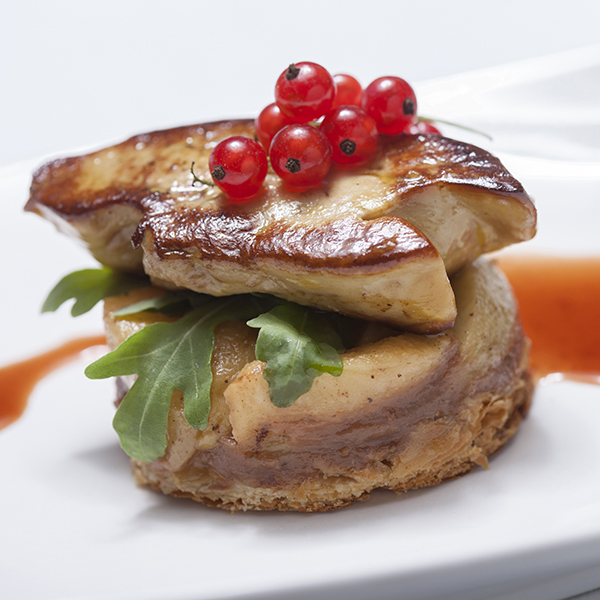Rhode Island has become the latest state to attempt to ban the sale of foie gras, following back-and-forth legal wrangling that has dragged on for almost two decades in California and a ban that is set to become effective next year in New York City.
Proponents of the bans claim that the process of making foie gras involves animal cruelty because of the force-feeding methods that cause the birds’ livers to swell—hence the name foie gras, French for “fat liver.”
Rhode Island’s proposed Force-Fed Poultry Act, introduced last week, would prohibit restaurants and retailers from selling any foods containing force-fed poultry products. In California, former Gov. Arnold Schwarzenegger signed the nation’s first ban on the sale and production of foie gras in 2004, although the law did not take effect until 2012 and has since been repeatedly challenged by chefs and foie gras producers who claim their methods of farming are not outside the norm.
“If you have any experience in farming, and you compare what we do, you see that it is quite acceptable, but not always understood,” said Marcus Henley, manager of Hudson Valley Foie Gras, based in Ferndale, New York.
Henley said he offers two-hour tours of his farm, including the feeding process, to any “unbiased” visitors who show up unannounced, to prove that his methods are humane.
The farm has been the subject of intense scrutiny from animal welfare groups, which have alleged cruel conditions for the animals that undergo the force-feeding process. The Animal Legal Defense Fund, along with plant-based food maker The Regal Vegan, sued Hudson Valley Foie Gras in 2012, alleging false advertising in its claim to be “the Humane Choice.”
The Regal Vegan at the time produced a vegan alternative to foie gras called Faux Gras, which was discontinued last year.
“Consumers deserve to know the truth about the exploitation of ducks and the reality behind foie gras’s force-fed lies," the ALDF said in a press release after winning the suit.
Several chefs in both New York and California have voiced their support for the use of foie gras.
David Chang of Momofuku in New York City in a tweet called the ban there “Idiocracy … stupid, short-sighted and a misunderstanding of the situation.”
Celebrity chefs Wolfgang Puck ad Charlie Trotter both have been quoted as speaking out against the use of foie gras, however.
Several restaurants in Rhode Island that serve foie gras, along with multiple distributors, did not respond to requests for comment about the proposed ban there.
Whole Foods lists foie gras among the 100-plus products and ingredients it does not sell in its stores, reportedly because of concerns over animal welfare.
Henley claims that the ban on the sale of foie gras in California, which last year was partially lifted to allow the import of foie gras purchased from out of state, is not only based on faulty information about the conditions of the birds, but also violates federal laws barring states from regulating interstate commerce.
“I may think that it’s inhumane for people to pick tomatoes when it’s 90 degrees in California, but it’s a foundational principle of the country that we are allowed free trade between the states,” he said.
Foie gras bans should be of particular concern to specialty food makers, retailers, and restaurants, said Henley.
“If someone doesn’t want to eat meat, that doesn’t mean we should make meat illegal,” he said. “It’s dangerous to pass this kind of legislation. Where does it stop?”
Related: Foie Gras Can Be Served in CA Again; Meat Sales Increase Due to Pandemic.

